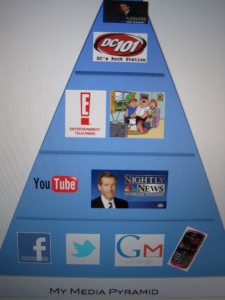The all powerful link- Brigg’s chapter three
I love links. Most of my own online reading is sparked through links on Twitter and through other articles I am already reading.
Can you imagine using Wikipedia, Twitter, Facebook, or onlines articles without the use of links? Chances are you would be more likely to stop reading.
I find it hard to understand that journalists used to believe that linking an article would lose readership. I personally follow specific news sources on Twitter because they link. With all of the information one can find online, it helps to have a source direct you towards something that might be relevant and interesting.
It is like the author is saying, “you obviously enjoyed this article, here’s more information!”
Brigg’s mentions a quote in Chapter 3 on this matter from Jeff Jarvis, the director of the interactive journalism program at the City University of New York, “do what you do best and link to the rest.”
Link journalism, as described by Brigg’s, can often be a means for collaboration between different news organizations. If more than one source comes together to help document a major event, this can add credibility and traffic back to news individual sites.
Here are a few examples of Link journalism sites:
- The New York Times
- The Washington Post
- Pro Publica
- Other various news sites
Here are some thoughts on Link journalism from Jay Rosen, a professor of journalism at New York University.

